
Burton Stephen Lancaster was an American actor and film producer. Initially known for playing tough guys with a tender heart, he went on to achieve success with more complex and challenging roles over a 45-year career in films and television series. He was a four-time nominee for the Academy Award for Best Actor, and he also won two BAFTA Awards and one Golden Globe Award for Best Lead Actor. The American Film Institute ranks Lancaster as #19 of the greatest male stars of classic Hollywood cinema.
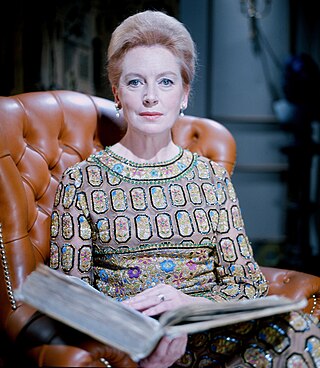
Deborah Jane Trimmer CBE, known professionally as Deborah Kerr, was a British actress. She was nominated six times for the Academy Award for Best Actress, becoming the first person from Scotland to be nominated for any acting Oscar.
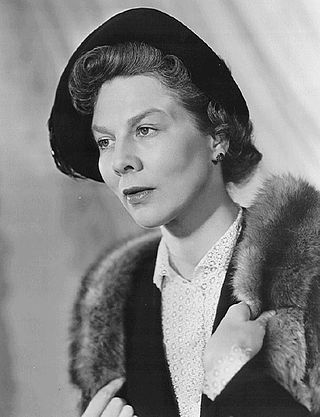
Dame Wendy Margaret Hiller, was an English film and stage actress who enjoyed a varied acting career that spanned nearly 60 years. Writer Joel Hirschorn, in his 1984 compilation Rating the Movie Stars, described her as "a no-nonsense actress who literally took command of the screen whenever she appeared on film". Despite many notable film performances, Hiller chose to remain primarily a stage actress.
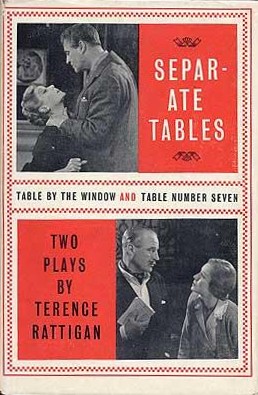
Separate Tables is the collective name of two one-act plays by Terence Rattigan, both taking place in the Beauregard Private Hotel, Bournemouth, on the south coast of England. The first play, titled Table by the Window, focuses on the troubled relationship between a disgraced Labour politician and his ex-wife. The second play, Table Number Seven, is set about 18 months after the events of the previous play, and deals with the touching friendship between a repressed spinster and Major Pollock, a kindly but bogus man posing as an upper-class retired army officer. The two main roles in both plays are written to be played by the same performers. The secondary characters – permanent residents, the hotel's manager, and members of the staff – appear in both plays. The plays are about people who are driven by loneliness into a state of desperation.
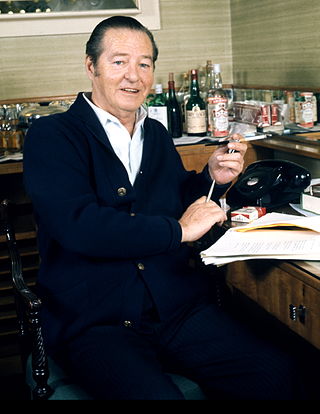
Sir Terence Mervyn Rattigan was a British dramatist and screenwriter. He was one of England's most popular mid-20th-century dramatists. His plays are typically set in an upper-middle-class background. He wrote The Winslow Boy (1946), The Browning Version (1948), The Deep Blue Sea (1952) and Separate Tables (1954), among many others.
The year 1953 in film involved some significant events.

Rita Hayworth was an American actress. She achieved fame in the 1940s as one of the top stars of the Golden Age of Hollywood, and appeared in 61 films in total over 37 years. The press coined the term "The Love Goddess" to describe Hayworth after she had become the most glamorous screen idol of the 1940s. She was the top pin-up girl for GIs during World War II.

Bonjour Tristesse is a 1958 British-American Technicolor film in CinemaScope, directed and produced by Otto Preminger from a screenplay by Arthur Laurents based on the novel of the same name by Françoise Sagan. The film stars Deborah Kerr, David Niven, Jean Seberg, Mylène Demongeot and Geoffrey Horne, and features Juliette Gréco, Walter Chiari, Martita Hunt and Roland Culver. It was released by Columbia Pictures. This film had color and black-and-white sequences, a technique unusual for the 1950s, but widely used in silent movies and early sound movies.
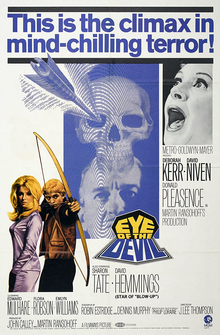
Eye of the Devil, also known by its working title 13 or Thirteen, is a 1966 British mystery horror film directed by J. Lee Thompson and starring Deborah Kerr, David Niven, Donald Pleasence, Sharon Tate and David Hemmings. Based on the 1964 novel Day of the Arrow by Robin Estridge, the movie is set in rural France. It was shot at the Château de Hautefort and in England.

Only Angels Have Wings is a 1939 American adventure romantic drama film directed by Howard Hawks, starring Cary Grant and Jean Arthur, and is based on a story written by Hawks.
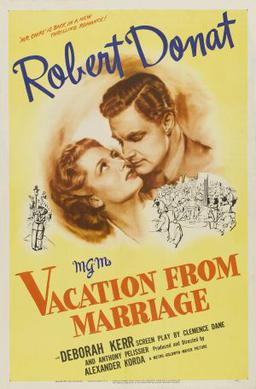
Perfect Strangers, is a 1945 British drama film made by London Films. It stars Robert Donat and Deborah Kerr as a married couple whose relationship is shaken by their service in the Second World War. The supporting cast includes Glynis Johns, Ann Todd and Roland Culver. It was produced and directed by Alexander Korda from a screenplay by Clemence Dane and Anthony Pelissier based on a story by Clemence Dane. Dane won the Academy Award for Best Story. The music score was by Clifton Parker and the cinematography by Georges Périnal.
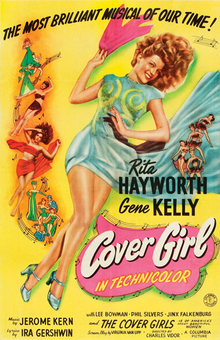
Cover Girl is a 1944 American musical romantic comedy film directed by Charles Vidor, and starring Rita Hayworth and Gene Kelly. The film tells the story of a chorus girl given a chance at stardom when she is offered an opportunity to be a highly paid cover girl. It was one of the most popular musicals of the war years.
Harold Adolphe Hecht was an American film producer, dance director and talent agent. He was also, though less noted for, a literary agent, a theatrical producer, a theatre director and a Broadway actor. He was a member of the Academy of Motion Pictures Arts and Sciences and the Screen Producers Guild.

James Hill was an American film producer and screenwriter active from the late 1940s to the mid-1960s. He was born in Indianapolis, Indiana and came to Hollywood as a writer, working on films and televisions shows for Warner Brothers Pictures and Columbia Broadcasting System. He was eventually teamed with film producer Harold Hecht and actor Burt Lancaster when the pair produced His Majesty O'Keefe for their own film production company, Norma Productions. The movie was filmed in 1952 in the Fiji Islands, but only released in 1954.
Tonight and Every Night is a 1945 American musical film directed by Victor Saville and starring Rita Hayworth, Lee Bowman and Janet Blair. The film portrays wartime romance and tragedy in a London musical show, loosely modelled on the Windmill Theatre in Soho, that determined not to miss a single performance during the Blitz. Hayworth plays an American showgirl who falls in love with an RAF pilot played by Bowman.

The Gypsy Moths is a 1969 American drama film, based on the 1955 novel of the same name by James Drought and directed by John Frankenheimer. The film tells the story of three barnstorming skydivers and their effect on a Midwestern American town, focusing on the differences in values between the town folk and the hard-living skydivers.
The 16th Golden Globe Awards, honoring the best in film for 1958 films, were held on March 5, 1959.

Summer of the Seventeenth Doll is a 1959 Australian-British film directed by Leslie Norman and is based on the Ray Lawler play Summer of the Seventeenth Doll. In the United States the film was released under the title Season of Passion.
Helen Hunt was a hair stylist in Hollywood movies from the 1930s up to 1967, when she worked on Guess Who's Coming to Dinner. She was the chief hair stylist for Columbia Pictures.
Burton Stephen Lancaster was an American actor and producer. Initially known for playing tough guys with a tender heart, he went on to achieve success with more complex and challenging roles over a 45-year career in film and, later, television. He was a four-time nominee for the Academy Award for Best Actor, and he also won two BAFTA Awards and one Golden Globe Award for Best Lead Actor. The American Film Institute ranks Lancaster as #19 of the greatest male stars of classic Hollywood cinema.














